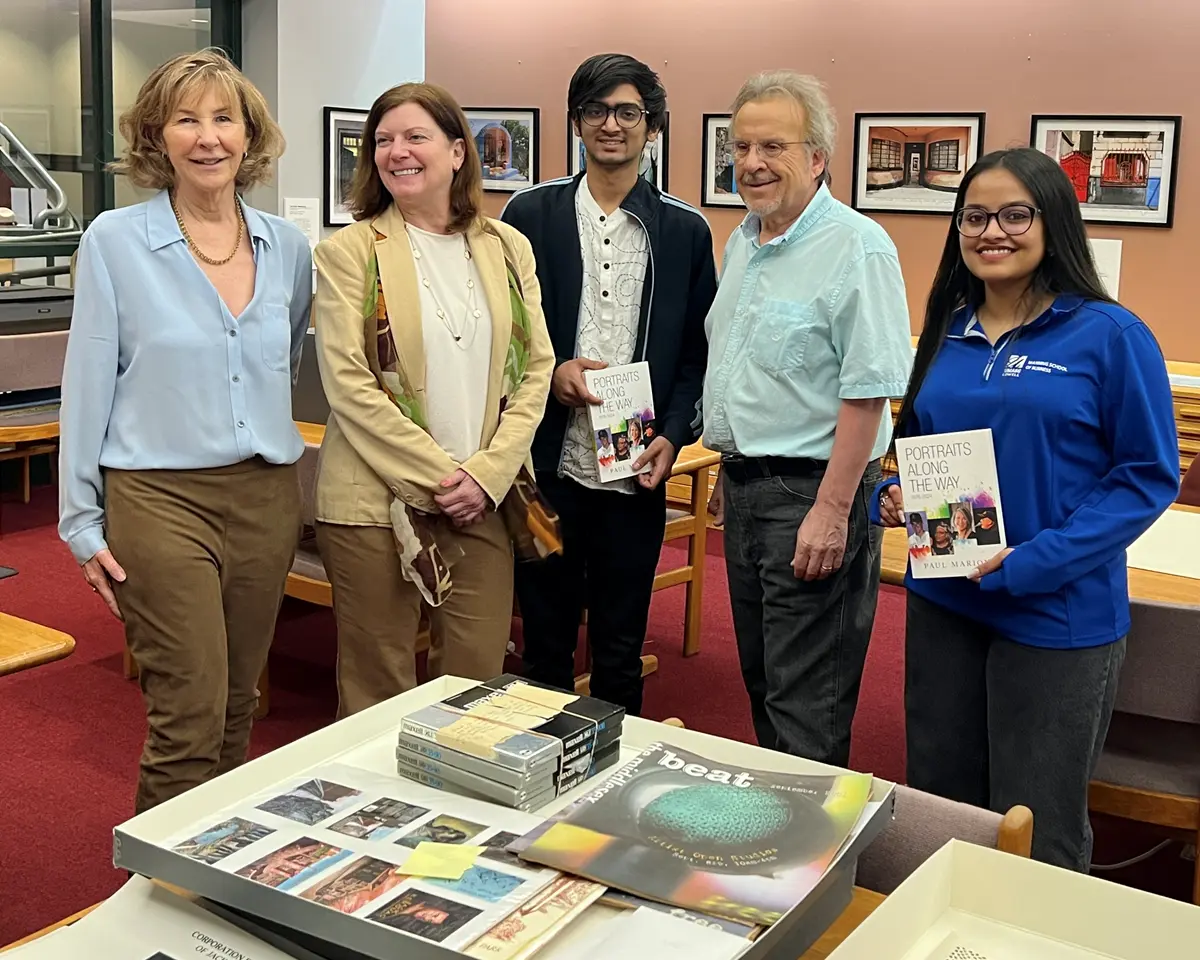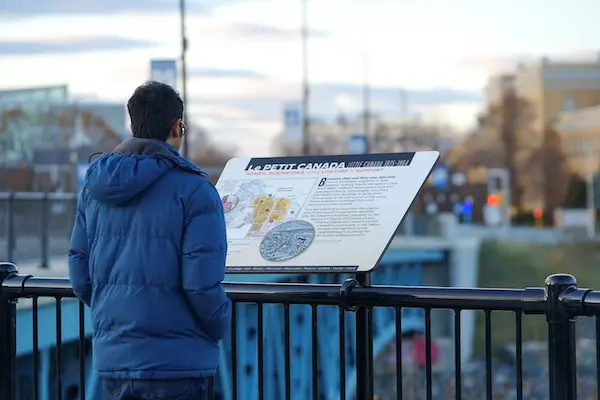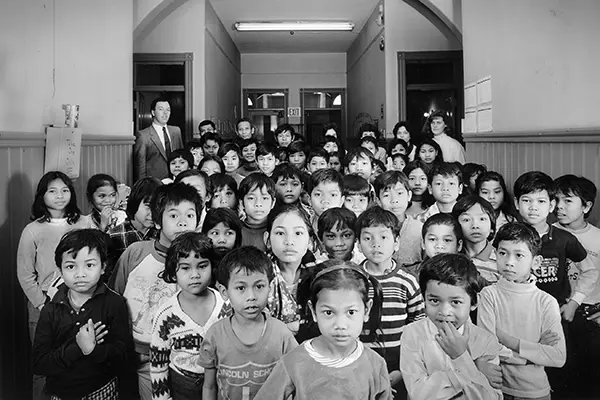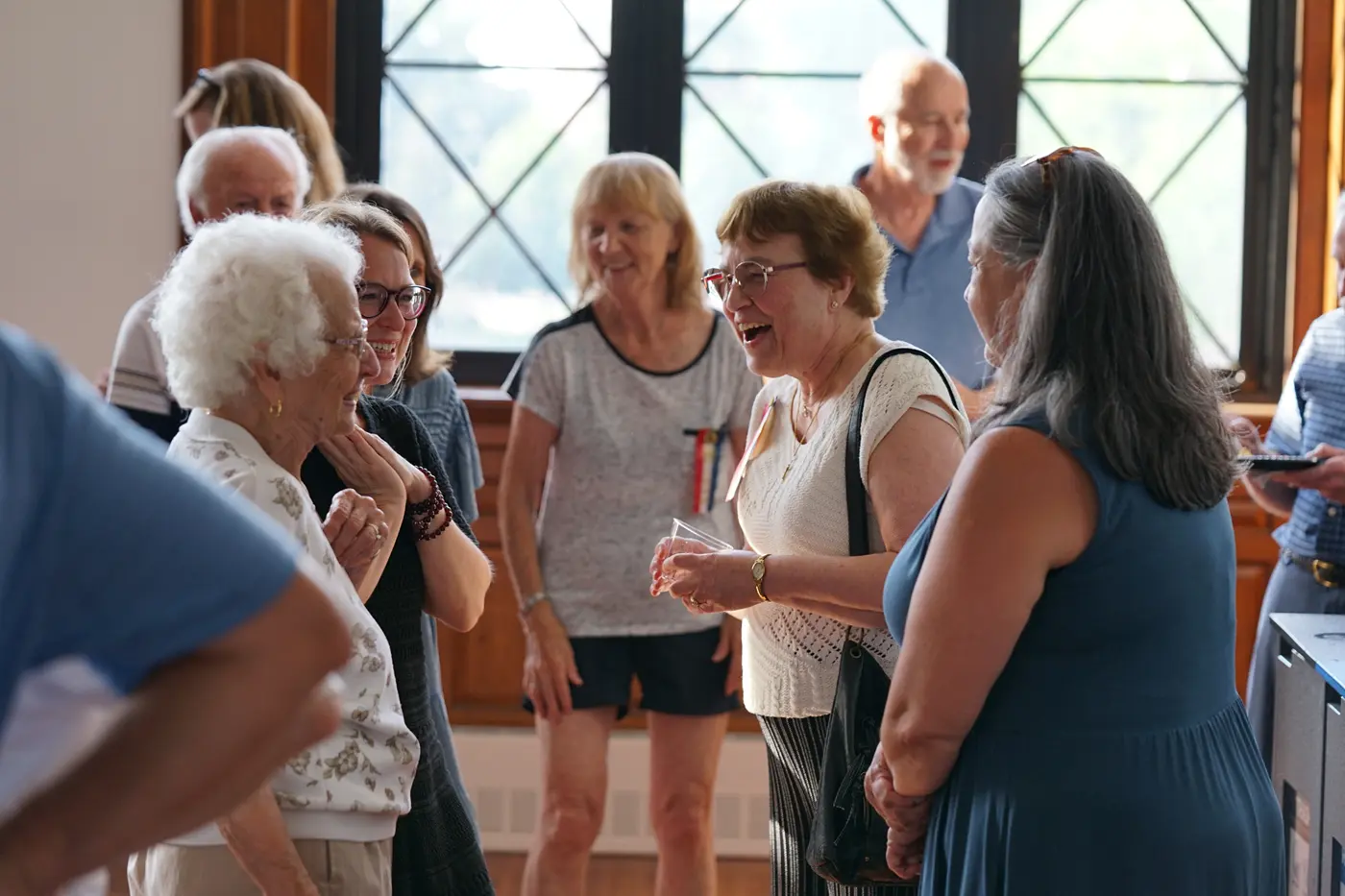 Image by Ed Brennen
Image by Ed Brennen
Suzanne Beebe, right center, who is the main community liaison for the Greater Lowell Franco American Digital Archive, laughs at the formal launch while speaking with Doris Cote, left. Cote is featured in the video "One Family, Three Women: A Tale of Franco American Lowell."
Eight years ago, Suzanne Beebe, a Lowell native who is Franco American on both sides of her family, joined Lowell’s Franco-American Day Committee and began learning as much as she could about the history of French Canadian immigration and settlement in New England.
Beebe, who grew up speaking English at home in a neighborhood without a Franco American church or school, began to understand how all-embracing life in the French enclaves of Lowell and New England had once been.
She also realized that much of that history and culture was in danger of being lost.
“I was painfully aware of how many people who had grown up in these enclaves were now in their 80s and 90s and passing rapidly from the scene,” she says. “So I was asking myself, ‘How are we going to preserve their memories, photos and other artifacts of Franco American life?’”
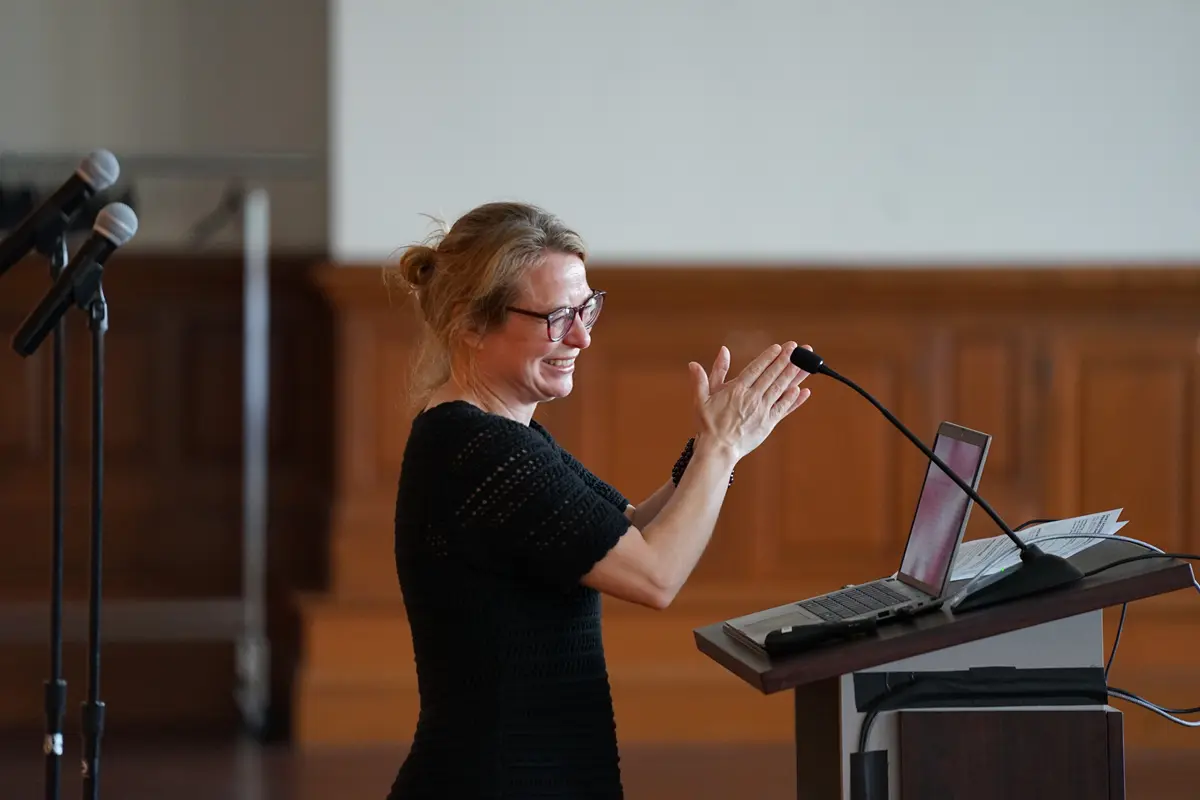 Image by Ed Brennen
Image by Ed Brennen
French and Francophone Studies Associate Professor Mercedes Baillargeon addresses the crowd at the formal launch of the Greater Lowell Franco American Digital Archive.
Baillargeon hoped to connect with Lowell’s Franco American community – which made up one-third of the city’s population in the 1920s – study its history, and preserve and share as much of that history as possible by creating a digital archive within the university library system.
That archive, formally launched in June, will also become part of the Franco American Digital Archives, which are hosted by the University of Maine and include collections at colleges and universities across the Northeast.
Now, Baillargeon and Beebe are working with the Center for Lowell History and the Franco-American Day Committee on collecting, documenting and digitizing Lowell-area newspapers, photos, recipes and family histories to share with academics, students and future generations.
“Personal diaries and correspondence are super-interesting, and people love reading them, especially those with personal elements of immigration and Franco American culture and food and festivals,” Baillargeon says.
The Center for Lowell History, a part of the university library system that is housed downtown in a building owned by Lowell National Historical Park, already has troves of Franco American materials, including a collection of sheet music and microfilm reels of the longest-running French language newspaper in Lowell: L’Etoile, published from 1886 to 1957.
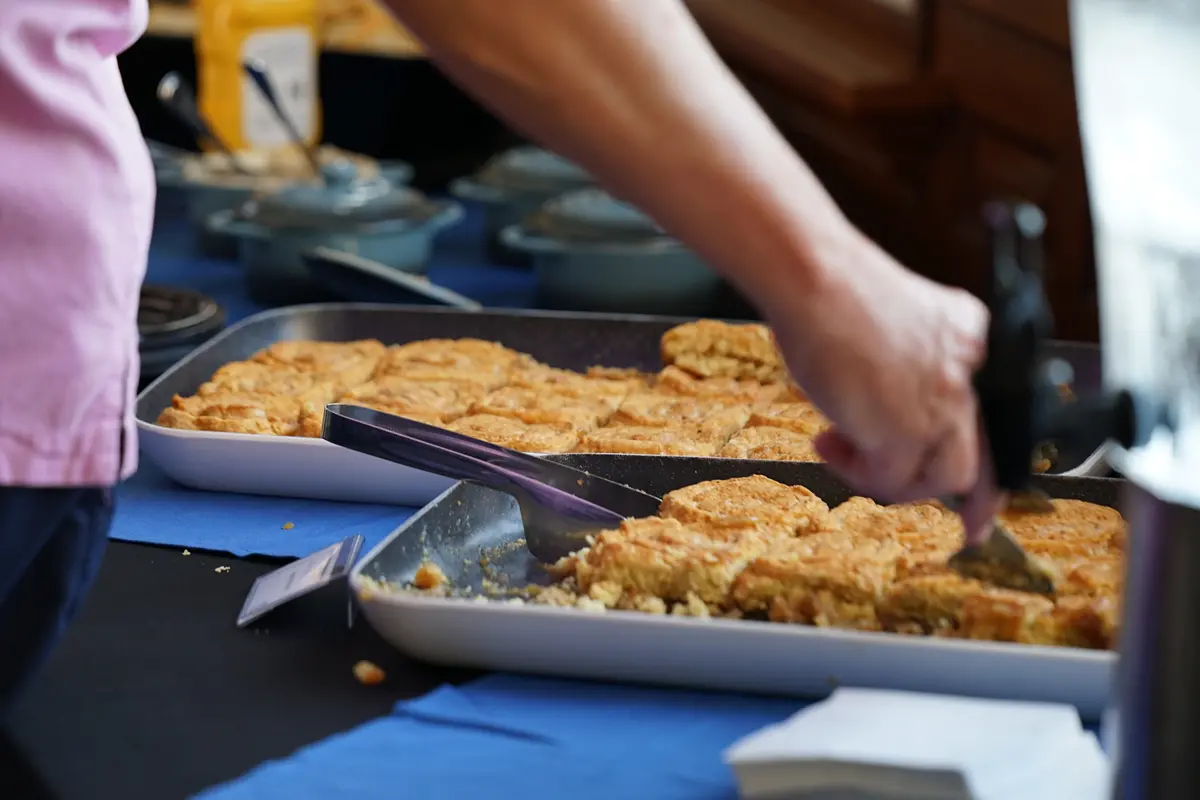 Image by Ed Brennen
Image by Ed Brennen
A woman helps herself to a petes de soeur, a French American pastry sweetened with maple syrup or brown sugar.
One document that’s already fully available, thanks to the sharp eyes and hard work of UML student Lilian Whitehead, a biology major who works at the Center for Lowell History, is a handsome book documenting the history of St. Joseph’s Parish and its satellite church, St. Jean Baptiste, in the downtown neighborhood then known as Little Canada.
The book was published in 1916 to commemorate the renovation and reopening of St. Jean Baptiste, four years after it was gutted by fire. Whitehead found it while browsing through boxes of donated materials.
“It was really well-preserved for its age and printed on beautiful glossy paper, with hundreds of pictures,” says Whitehead, who is being paid for her work under a $10,000 Community-Engaged Research and Scholarship Fund grant awarded to the new archive by the university.
The book, which Whitehead spent months scanning into a format that allows viewers to flip through it, features photos of some of Little Canada’s most important sites, including the former Franco-American Orphanage (later the Franco-American School) on Pawtucket Street and “The Grotto” dedicated to Our Lady of Lourdes behind it.
The Community-Engaged Research and Scholarship grant is also paying for Baillargeon and Beebe to organize events for the Franco American community and record them for the archive, including the showing this past April of a 1979 documentary about Lowell’s Little Canada and a panel discussion with the grown children of people who appeared in the film and History Professor Robert Forrant.
Forrant oversaw a 2020 effort to place historical markers around the neighborhood that was once Little Canada; it was mostly razed in the late 1960s as part of an urban renewal project.
“The archive allows us to memorialize the culture so it’s not forgotten, but it’s also so people can come together and reminisce,” Baillargeon says.
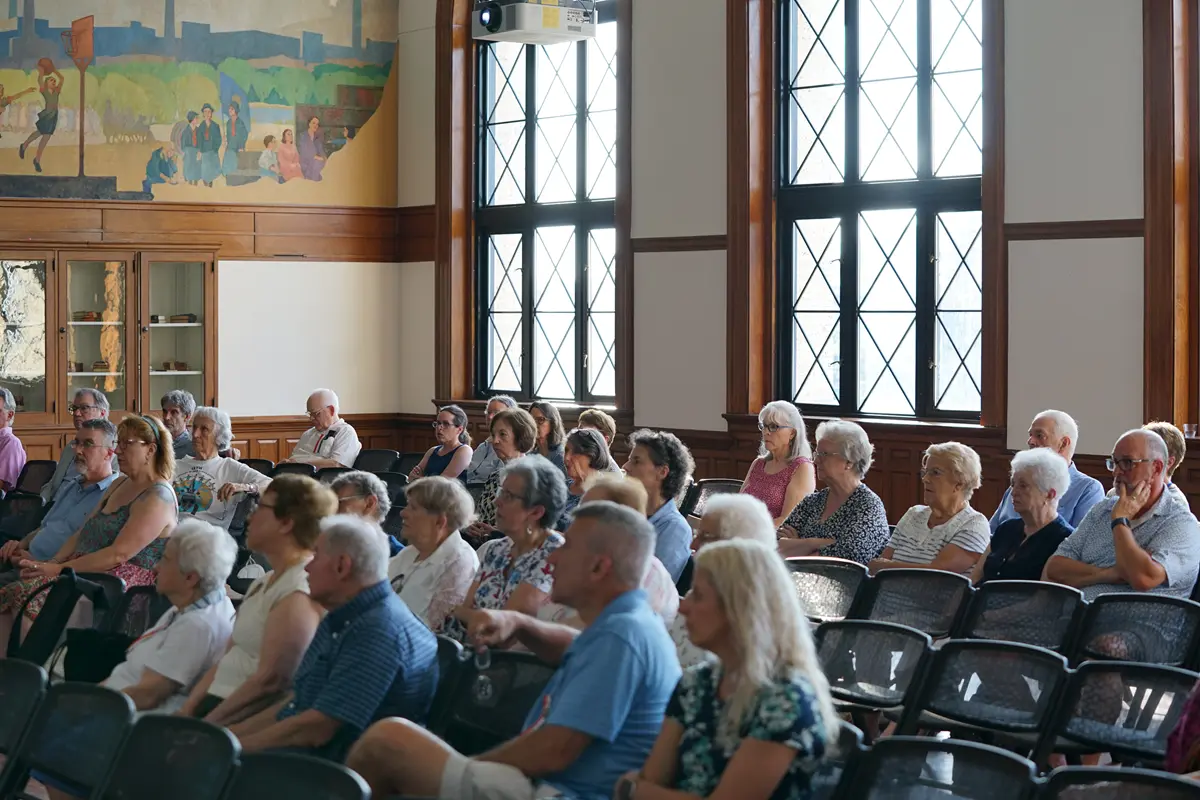 Image by Ed Brennen
Image by Ed Brennen
A mostly older group of Franco Americans turned out to celebrate the formal launch of the digital archive.
Most recently, about 70 people turned out in June to celebrate the formal launch of the Greater Lowell Franco American Digital Archive.
They watched the film of the three women and ate traditional Franco American foods, including cretons (a pork spread), tourtières (pork pies) and pètes de soeur, a pastry.
They applauded Beebe, the 2025 recipient of the Franco-American Day Committee’s “Franco American of the Year” award for her work as a liaison between the community and the university.
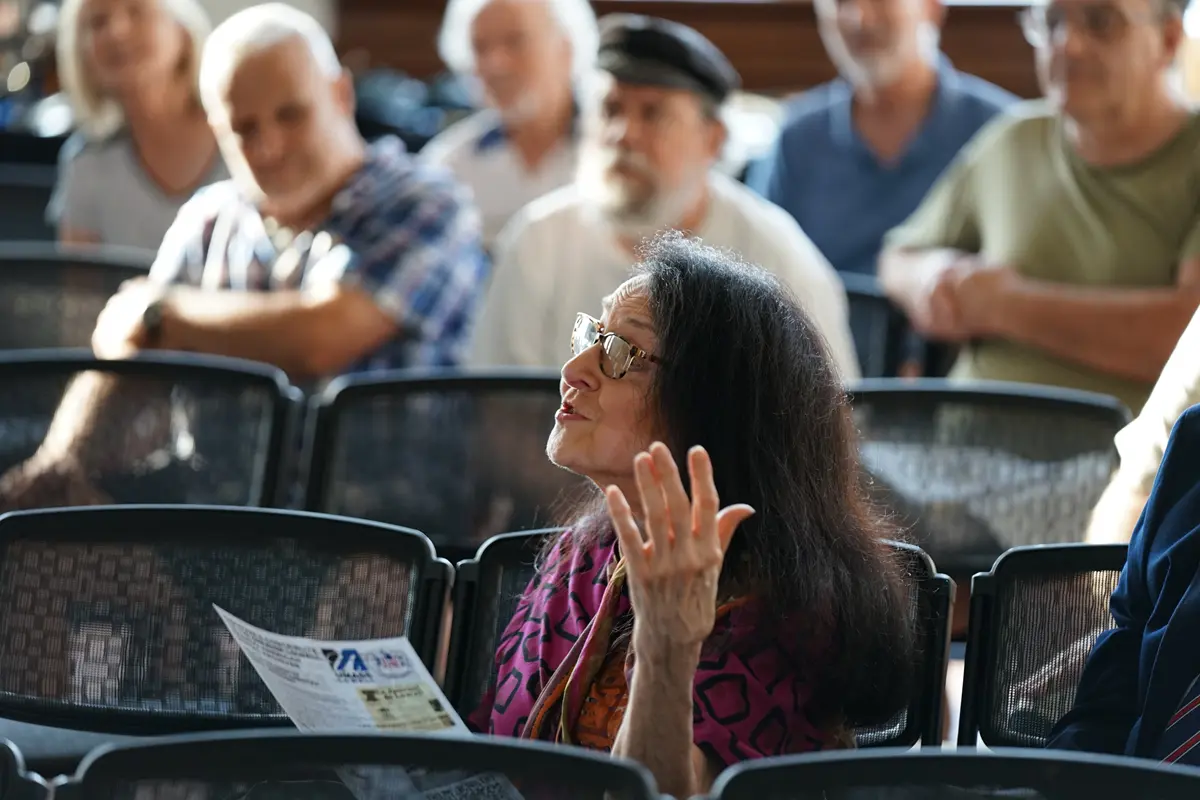 Image by Ed Brennen
Image by Ed Brennen
Michelle Lavallee Berti mourned the loss of French language skills among Franco Americans, inspiring a conversation in French with others at the event.
That’s why it’s urgent to preserve the community’s history now, Beebe and Baillargeon say, not only for students and historians but for anyone who wants to learn more about why their ancestors left their farms in Québec for Lowell – and how they maintained and adapted their culture.
“People have an interest in learning about their roots and learning about where they come from,” Baillargeon says.

